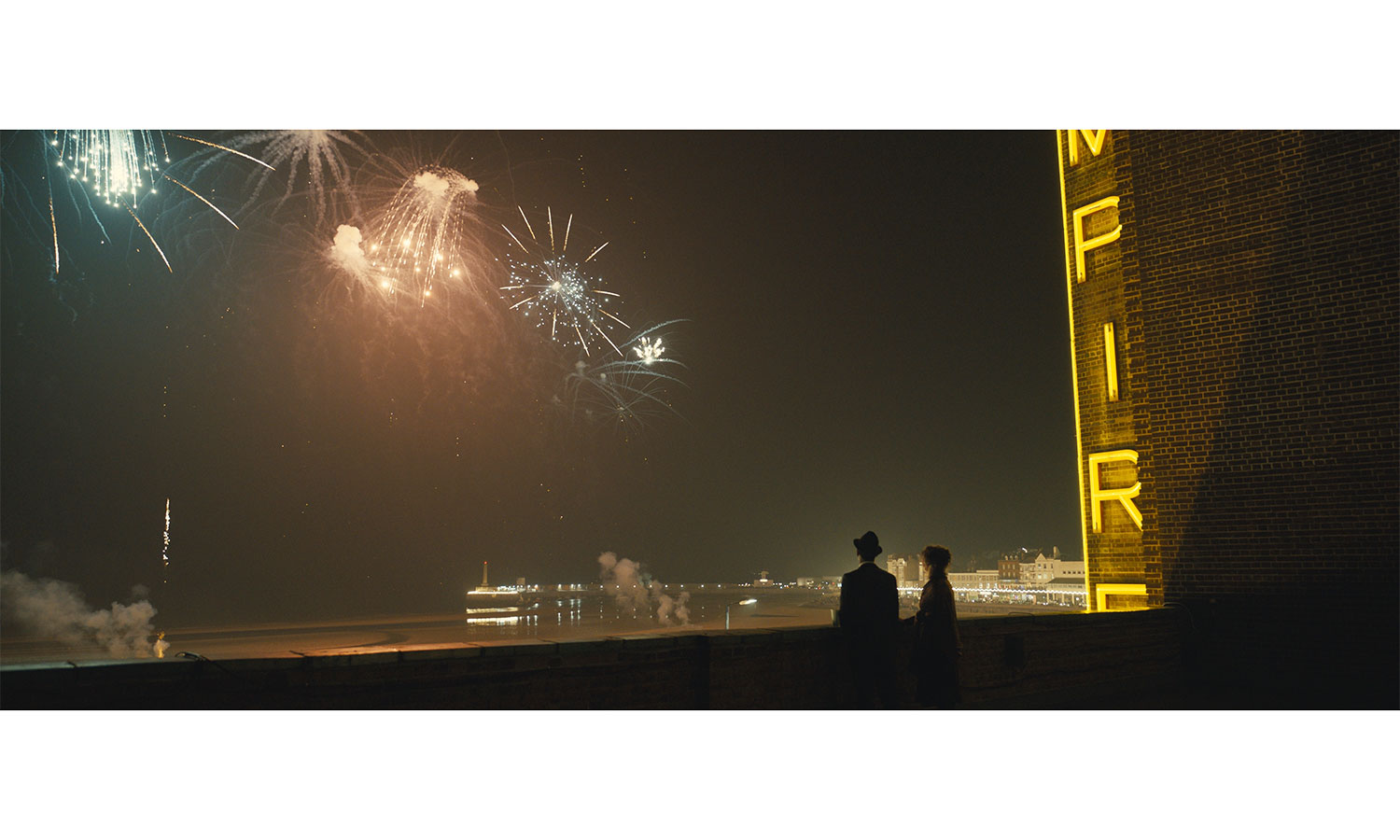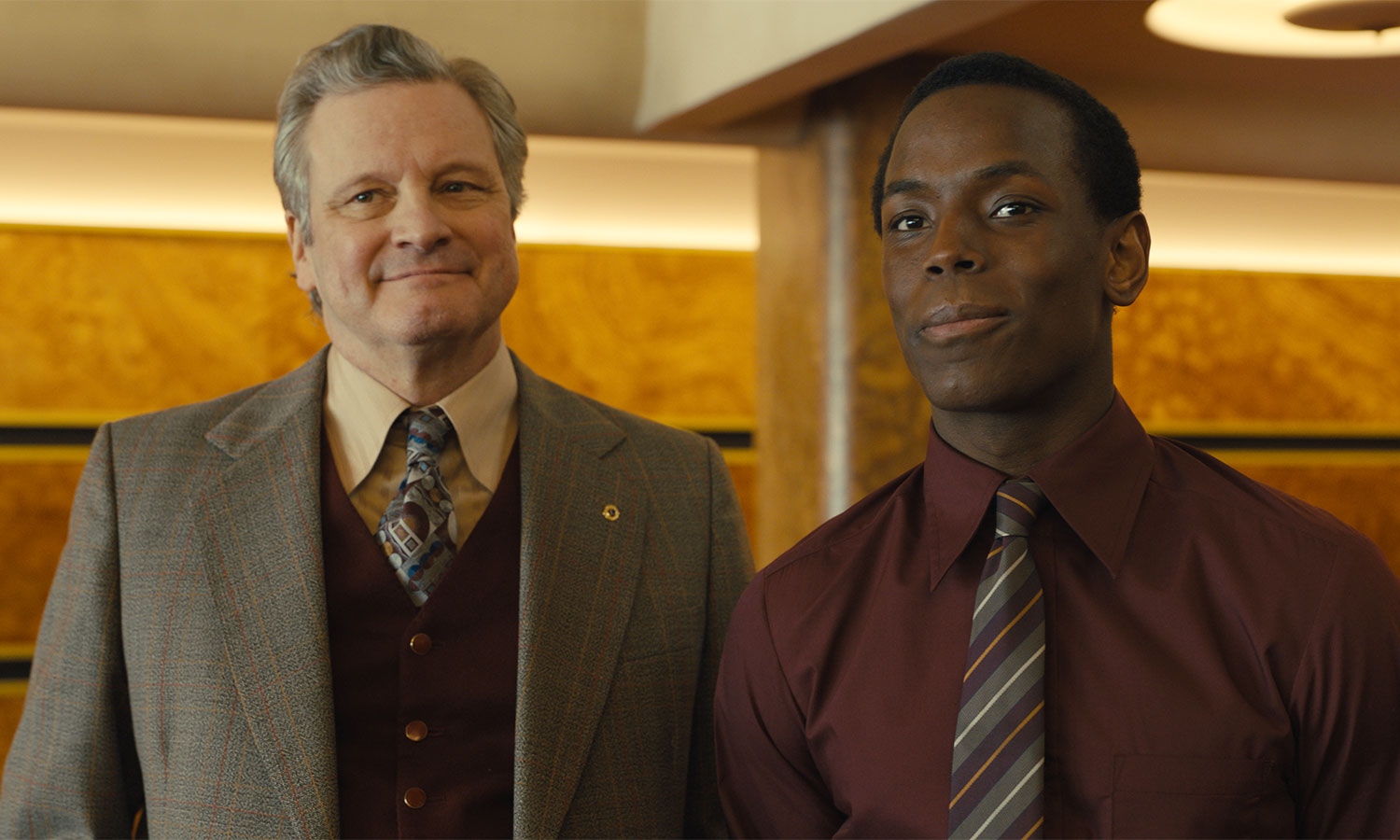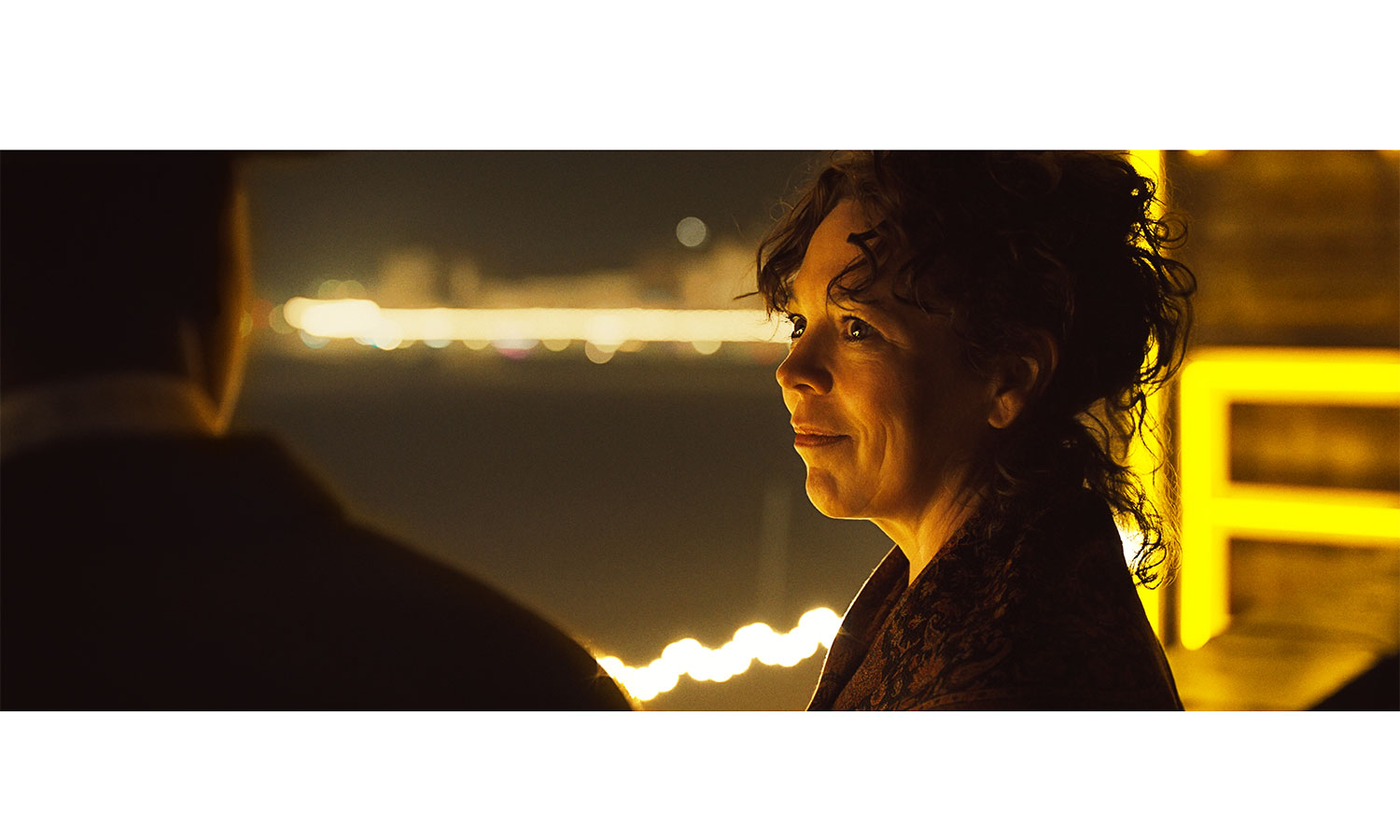Anticipation ran high for the new Sam Mendes movie starring the incomparable Olivia Colman. The trouble with high anticipation is that sometimes enthusiasm and expectation result in disappointment.
Mendes apparently believed that it was enough to assemble a marvelous cast and that his incomplete concept would come together; that the performance would generate itself. Or, quoting the reviled but previously very funny Woody Allen, “Right now it’s only a notion, but I think I can get the money to make it into a concept, and later turn it into an idea.”
“Empire of Light” is a panoply of marginally explored ideas looking for the glue to stick them together. Mendes, the director, forgot to tell Mendes, the writer, that he needed an actual story through-line to film. This was not a “slice of life” film like the Brits did so well in the 60s with their kitchen sink dramas or the French continue to do. Instead he gave us several threads, none of which are woven together enough to involve us either emotionally or intellectually.
It’s the cusp of 1981 when we meet Hilary, a middle aged woman who has had some sort of mental breakdown in the recent past and is now seeing a psychiatrist who prescribes lithium, our first hint of her bipolar disorder. She works as an assistant manager at the Empire, a glorious art deco movie house showing the first signs of aging and neglect, much like Hilary herself. Stabilized and numb to her surroundings, she is, nevertheless cocooned by her co-workers, sympathetic Neil, jolly punkish Janine, and marginally grumpy Norman, the projectionist. This is her family. But like many families, there is an undercurrent of abuse and that appears in the guise of Ellis, the owner and operator of the Empire. All know of Hillary’s troubled background. It played out right there at the ticket counter, but it is Ellis who uses that knowledge for his own gain. Hilary, numb to external forces, is an easy mark.

Then one day, in walks Stephen. He’s young, together, gorgeous, and black. He’s immediately adopted into their work family. But this is the early 80s and England is troubled with an anti-immigrant movement and racism in the form of skinheads. The ugliness of the prejudice is juxtaposed with the lovely seediness of this beachside resort town, Margate. But Stephen, born in Britain to a Trinidadian mother, can’t walk down a street without being accosted by hostility or the threat of bodily harm. He is a kind soul and clearly bright.
As unlikely as it seems (and this is a hard sell), Stephen and Hilary bond. He wants to be an architect but can’t get into college. Hilary encourages him to keep trying. She comes alive when she’s with him. Their friendship, with benefits, transcends what society would dictate for each of them.
Without revealing much of the ensuing action or consequences, suffice it to say that ultimately nothing jells. Characterization was left in the hands of the actors because there is no there, there in the story. Mendes was unable to capitalize on his idea to bring these characters into the milieu of the 80s with its revolutionary music scene, racism, and politics of isolation, not unlike those of the post-pandemic world. The overt hatred of the skinheads is cartoonish without depth or development.
This film takes place within a movie palace and yet there is little communicated about how the art form can bring people together. Somehow we’re left with it just being the place they work. It’s like leaving money on the table when you don’t draw any parallels to movies and life in general. Again, this is a case of the writer giving the director nothing to work with and leaving it up to the actors to find character when there’s no overarching plot into which they will fit. It’s improvisation by spectacular actors that goes nowhere.

The film, such that it is, is worth a watch for Olivia Colman alone (but not necessarily at a movie theater). Always excellent, here she is mesmerizing. In perhaps one of the best portrayals of a person living with and overwhelmed by an inexplicable illness and its effects, she makes you ache. Seamlessly flowing from “normal” and functioning to flying out of control without warning, or deeply, sadly withdrawn, it invites you into the mind of the affected. Happily ever after for Hillary is mere survival. It is truly a shame that one of her best portrayals is in a movie that fails to integrate it into a feasible story.
Colin Firth as Ellis does despicable things but somehow, because he’s an actor capable of communicating depth when all the character’s actions are shallow, remaining sympathetic to the audience when his actions are anything but. One can intuit that he is deeply dissatisfied and frustrated with the life he’s living, but it’s definitely not on any page he was given.
Michael Ward is Stephen, a young man whose promise is thwarted at every turn and yet he remains sunny. He suffers the most from the poorly conceived script because we know so little about his back story other than origin and that he wants to be an architect. But that again is a pitch and a miss for Mendes because here he is, working at a glorious icon of art deco architecture and nothing is made of it. We only know he wants to be an architect because he says so. He doesn’t draw; he doesn’t elaborate to his co-workers about the bygone era of this fading resort town. He’s just this gorgeous young man who suddenly appears, bonds with the much older Hillary like a life raft on a rocky sea, and takes abuse without complaint. Despite this film, Ward will go far in the future because he pops on screen. Imagine what he could do if he were given an actual character to portray.

Oftentimes writers become directors to protect their vision. This is a case, much like Julie Taymor and “Spiderman, Turn Off the Dark,” where the director felt that writing just gets in the way of vision. Mendes fundamentally underestimated the need for narrative structure and left himself without a cohesive story.
More’s the pity because the actual visuals produced by cinematographer Roger Deakins are superb. His play with light and the loving way he filmed inside the movie palace were delicious.
Is this a bad film? You would think so from my review, but it’s really just not a good film with a spectacular performance by Olivia Colman that stands almost in isolation. The harshness comes from the anticipation that a film called “Empire of Light” featuring a beautiful theater and a great actress might have been able to draw interesting and deep parallels between life and light and movies. Mendes got the money but the concept and idea never developed. Just consider me a woman scorned.
Opening December 9 at the AMC Century City 15 and the AMC Grove 14, as well as the Laemmle Monica Film Center, Laemmle Glendale, Laemmle Town Center 5, and Laemmle NoHo7.







